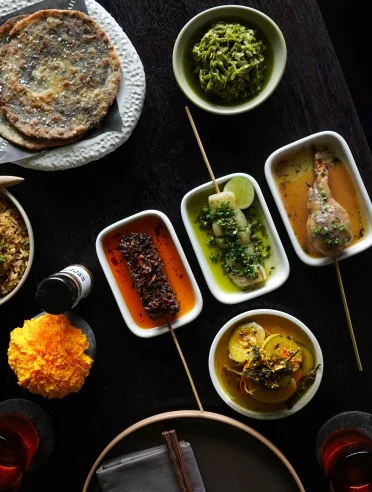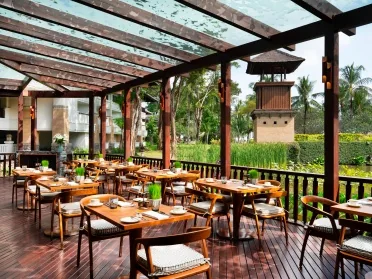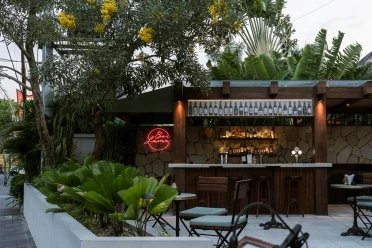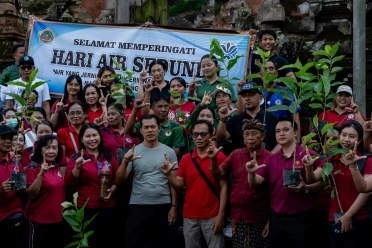When visiting Bali, you might find yourself witnessing one of the island’s many vibrant religious ceremonies, from processions to temple festivals. Central to these ceremonies is the figure of the priest, who plays a crucial role in Balinese spiritual life. In Bali, there are two main types of priests: the pedanda and the pemangku, each with distinct roles and responsibilities. This article focuses on the pedanda, the high priests of Balinese Hinduism.
Understanding the Role of the Pedanda: High Priests of Balinese Hindu
The High Priest of Bali
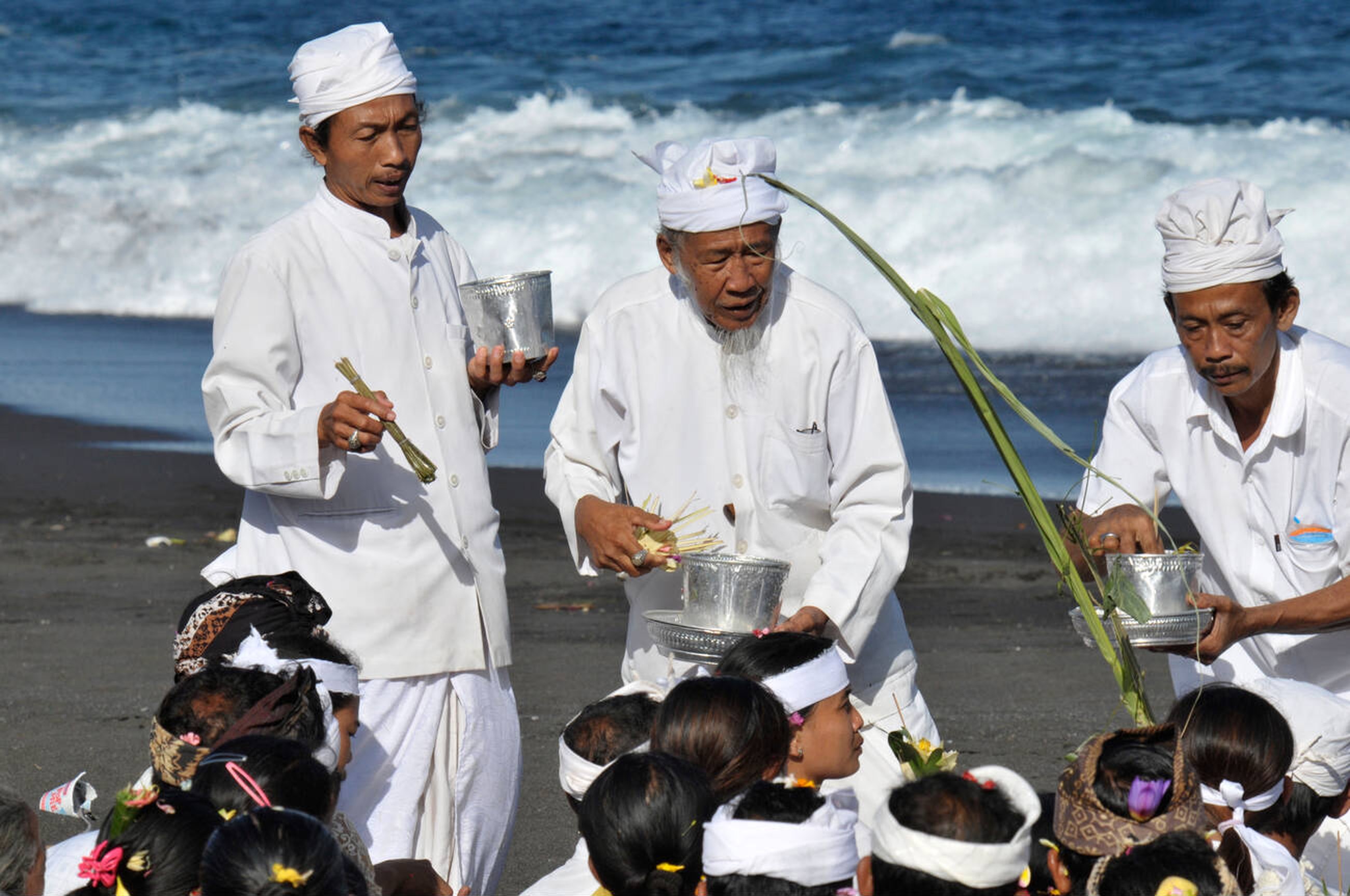
Pedanda are high priests of Bali, distinguished by their scholarly knowledge and deep spiritual roles. They belong to the Brahman caste, the highest caste in Balinese society, and are often seen as the keepers of sacred knowledge and cultural heritage. Pedanda are integral to major religious ceremonies and rituals, making them a revered part of Balinese spiritual life.
Distinguishing Features
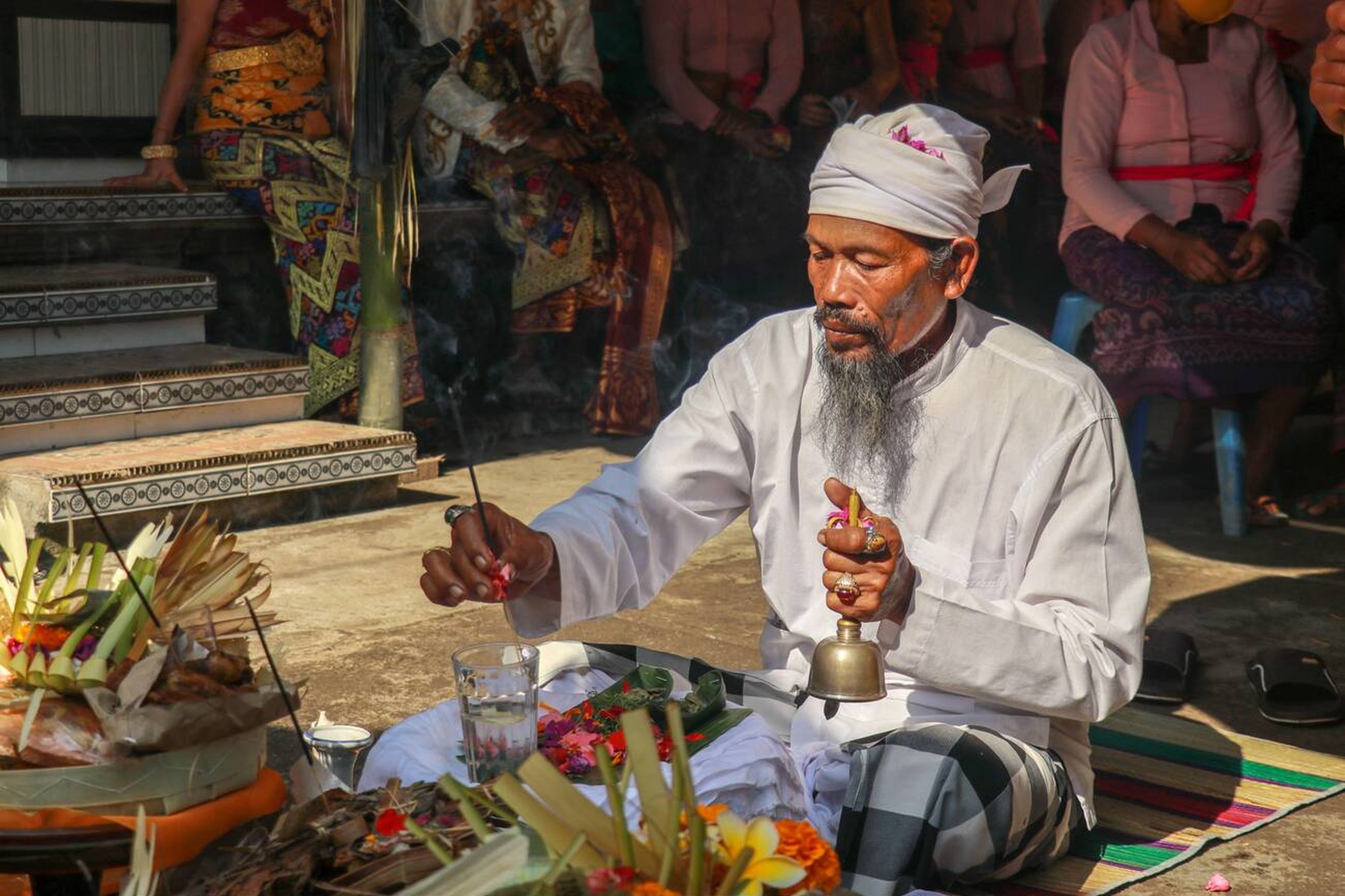
Pedanda are easily recognizable by their traditional attire. They typically wear all-white clothing, which symbolizes purity and divine connection. Their appearance is often gentle and distinguished, reflecting their esteemed position in society. Pedanda are known for their deep understanding of the Balinese Calendar and their ability to determine auspicious days for various events.
Female Pedanda
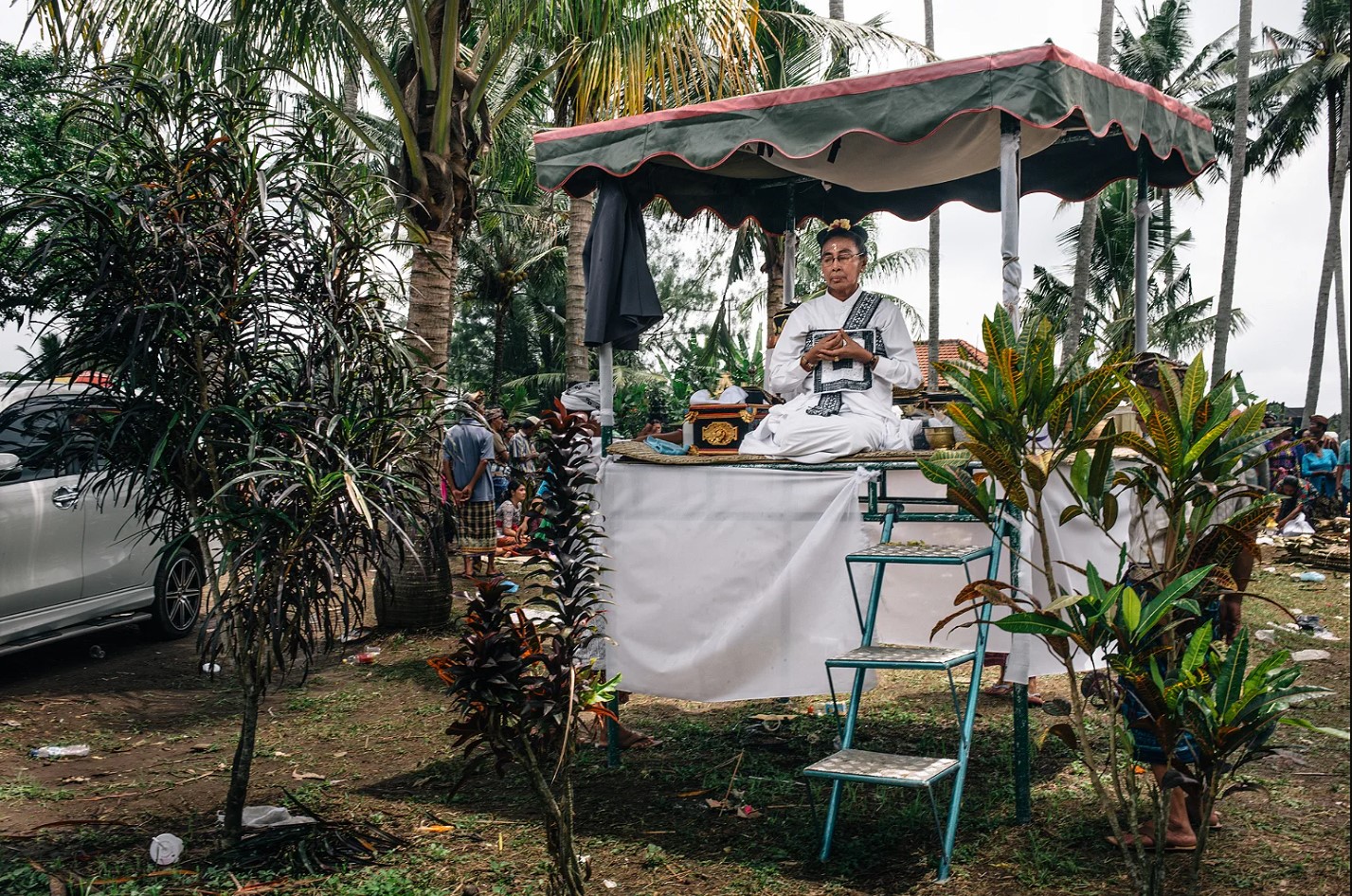
In the predominantly male world of Balinese high priesthood, the presence of female pedanda, such as the revered Ratu Pedanda, stands out as particularly significant. While most high priests are men chosen from the Brahmin caste, the selection of a female pedanda is a rare and esteemed occurrence. Her role is not just a testament to her personal spiritual prowess but also represents a significant moment in the evolving traditions of Balinese Hinduism. Female pedanda like Ratu Pedanda undergo the same rigorous initiation rites as their male counterparts, including symbolic death and rebirth, which adds a profound layer of respect and reverence to their position.
Roles and Responsibilities
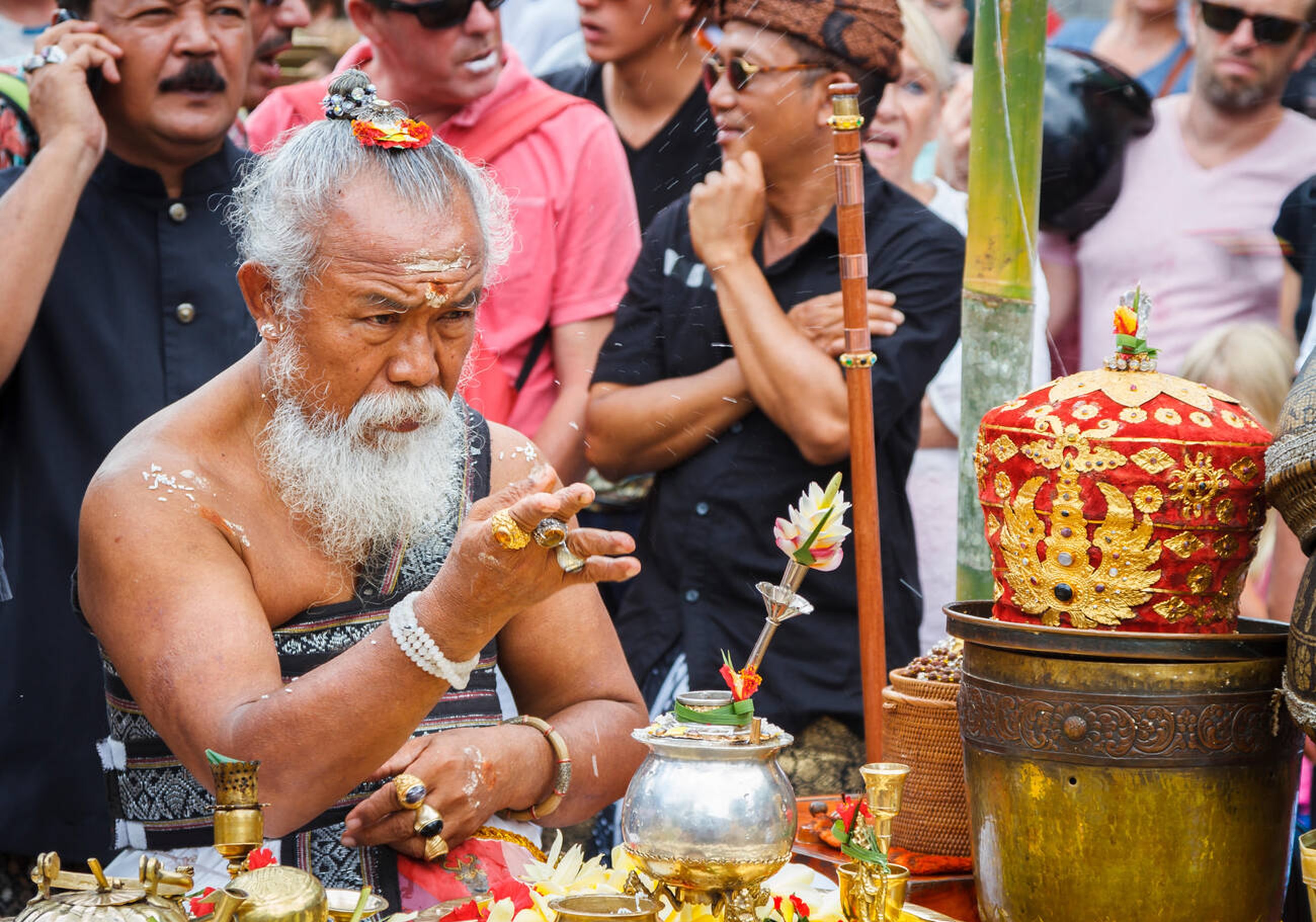
Pedanda perform a range of essential duties, including:
Conducting Major Ceremonies: Pedanda preside over significant rituals such as cremations, marriages, and temple inaugurations. Their involvement is crucial for ensuring that these ceremonies are conducted according to sacred traditions.
Preparing Holy Water: One of their primary responsibilities is the preparation of holy water, or "tirta," which is vital for any religious occasion. This water is believed to hold divine power and is used in various purification rituals.
Spiritual Guidance: Pedanda act as intermediaries between worshippers and the gods. They ensure that prayers and offerings are directed correctly to achieve desired outcomes.
Pedanda and Pemangku
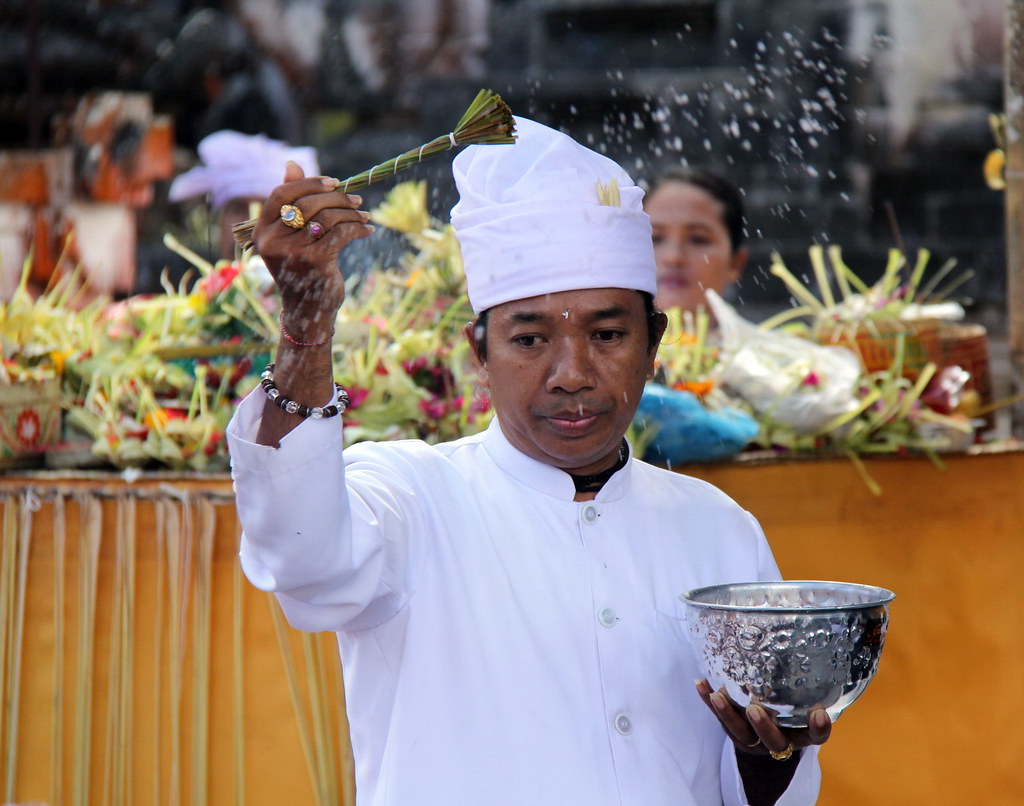
While both pedanda and pemangku are important in Balinese spirituality, they serve different functions. Pedanda are high priests with a focus on complex ceremonies and sacred rituals, whereas pemangku are temple priests involved in daily rituals and temple maintenance. Pemangku, recruited from lower castes, handle everyday temple activities and maintain direct contact with ancestors.
Unique Attributes
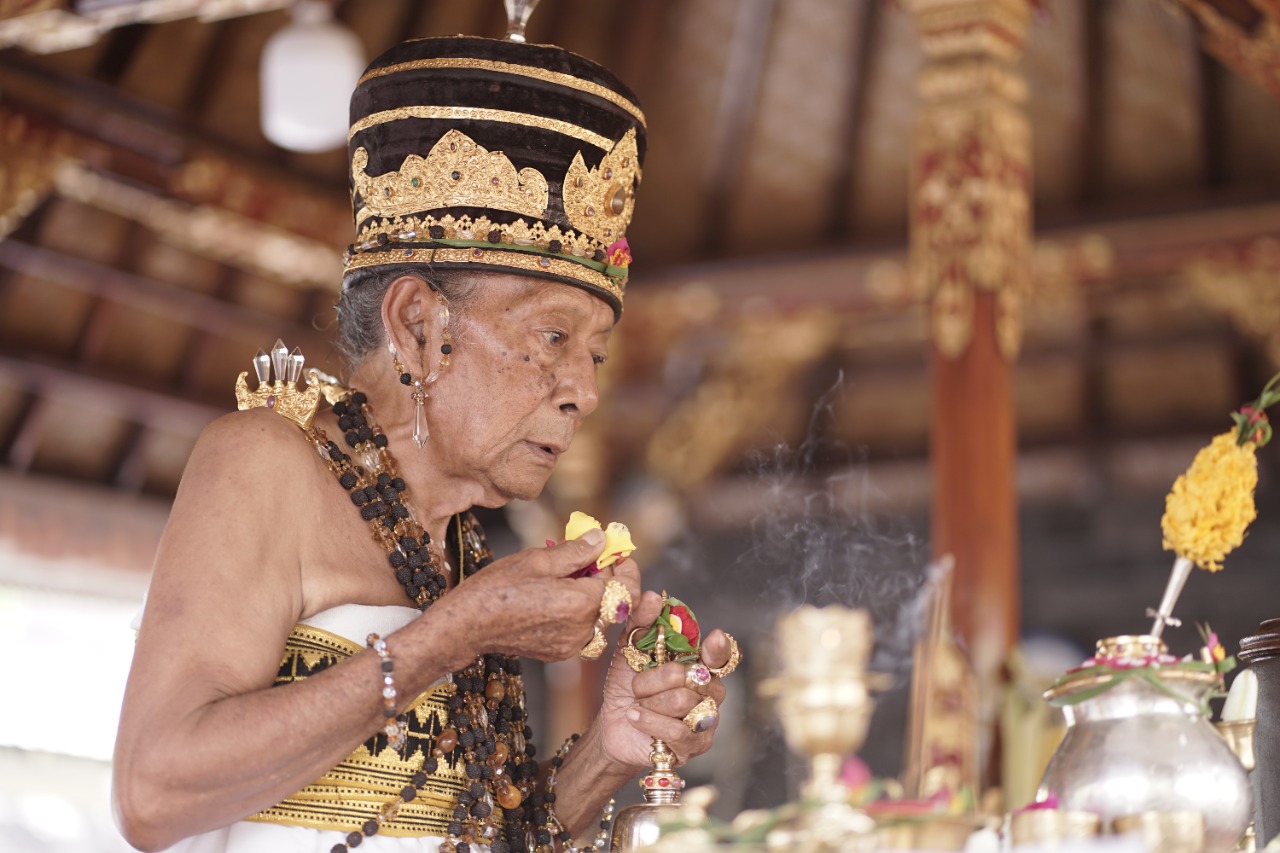
Pedanda are distinguished from other priests by their lineage and education. They claim a heritage from Wau Rauh of the Majapahit Empire, a revered figure in Balinese history. This historical connection underscores their role as guardians of ancient knowledge and rituals. Additionally, pedanda undergo a symbolic death and rebirth during their initiation, signifying their transformation into spiritual leaders.
Schools of Pedanda
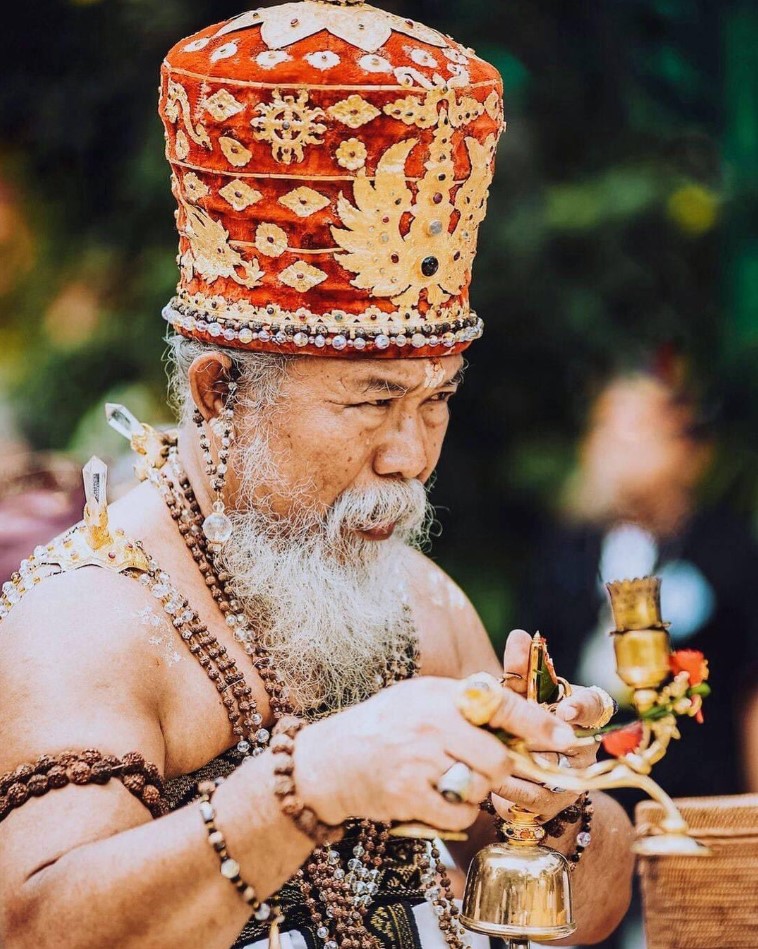
In Balinese priesthood, there are two main schools: the Pedanda Siwa and the Pedanda Buddha. These schools reflect the island’s blend of Hindu and Buddhist influences.
Pedanda Siwa: Worship Siwa, the supreme god in Balinese Hinduism. They are identified by their black hats and long hair styled in a topknot.
Pedanda Buddha: Worship both Siwa and Buddha, viewing them as aspects of the same divine presence. They wear red hats and have shorter hair.
Both schools collaborate in larger ceremonies, combining their unique rituals to enhance the spiritual experience.
Role in Modern Bali

In contemporary Bali, pedanda continue to play a vital role in maintaining cultural and spiritual traditions. They are often involved in key family events and major ceremonies, ensuring that ancient practices are preserved and respected. Their presence in Balinese life underscores the deep connection between spirituality and daily living on the island.
The pedanda are more than just religious figures; they are custodians of Bali’s rich spiritual heritage. Through their scholarly knowledge, ceremonial duties, and dedication to preserving sacred traditions, pedanda contribute significantly to the vibrant spiritual landscape of Bali. Whether overseeing major rituals or preparing holy water, their role remains central to the island’s cultural and religious life.



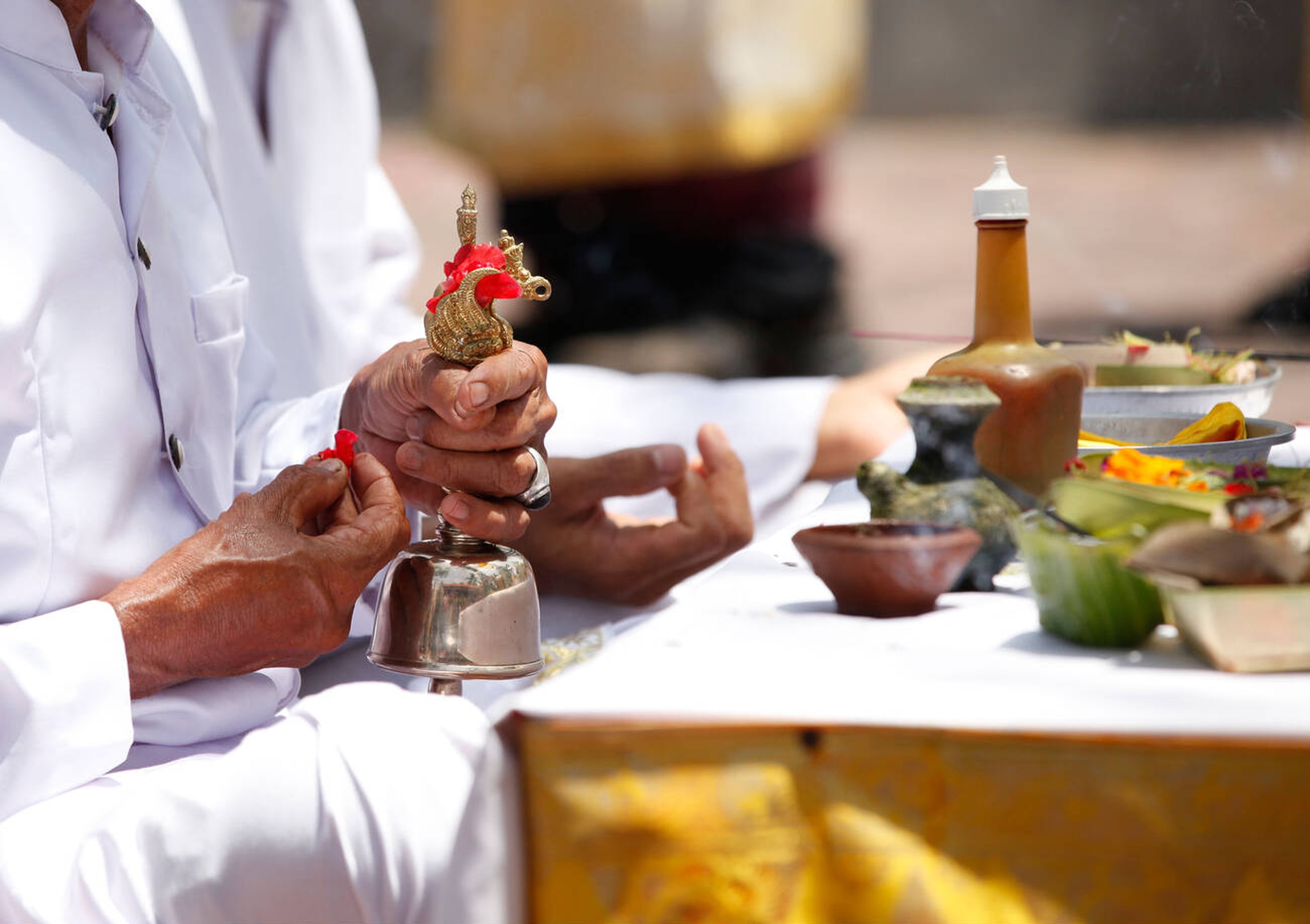
 Billy Bagus
Billy Bagus
 Aug 29, 2024
Aug 29, 2024


